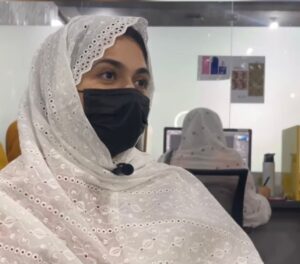PESHAWAR – One morning, the news breaks: an 11-year-old girl named Fiza has been gang-raped in Bahawalpur. The brutality of the crime does not end there — her lifeless body is found soon after.
Within days, the police launch an investigation, trace the suspects, and swiftly arrest four men. Justice appears to be in motion.
Rape is a crime. Gang rape is an even graver offense. Murdering the victim after the assault is the ultimate horror.
Then, a chilling revelation emerges—two of the perpetrators are the child’s maternal uncles, while the other two are close relatives. The very people meant to protect her had become her tormentors.
This case is not an anomaly. Not long ago, celebrated Pashto singer Nazia Iqbal released a desperate video plea, accusing her own brother of sexually abusing her daughter—his niece. She sought justice, only to be met with indifference.
These stories expose an unsettling truth: in many instances, the perpetrators are not strangers in dark alleys but members of the victims’ own families.
Justice or a Scripted Encounter?
If you have seen the Bollywood film Simmba, you might recall the dramatic police encounter scene—two men from a powerful family are arrested and later killed in custody. The official account? They attacked the police, who had no choice but to retaliate.
Something eerily similar unfolded in Bahawalpur. Shortly after the four suspects were taken into custody, reports surfaced that they had been killed in an “unfortunate incident” while in detention. The details felt like a script ripped straight from Simmba.
For many, this was a rare moment of swift justice—an anomaly in a system where victims often wait years for closure. The deaths of the perpetrators brought an uneasy sense of relief. But was this truly justice, or merely an extrajudicial spectacle?
The Dark Psychology Behind Rape-Murder
Why do rapists kill their victims? Research suggests that sexual violence is rarely about desire; rather, it is about power, control, and dominance. Killing the victim is often a continuation of the same pathology.
According to a 2018 article in Forensic Science & Criminal Investigation Journal, rapists frequently murder their victims to silence them, avoid legal repercussions, or escape social disgrace. Some cases masquerade as so-called “honor killings,” while others stem from deep-seated psychological disorders such as sexual sadism.
A 2023 Ph.D. dissertation by Indian scholar Dev Anand highlights the societal conditions that enable such crimes. Discrimination, unchecked aggression, weak legal deterrents, and victim-blaming foster a culture where rapists feel emboldened. When perpetrators see others evading justice—or even receiving implicit support—they act with impunity.
A Crisis That Will Not Slow Down
The Bahawalpur case is not an isolated event. What is unusual is the swift punishment of the accused. Cases of rape, gang rape, child rape, and rape-murders have become disturbingly common, saturating news cycles and social media feeds to the point of desensitization.
Hollywood and Bollywood have explored these grim realities through cinema, but awareness alone is not enough. Governments must enact stringent measures to curb sexual violence. Lawmakers must ensure swift justice, but prevention is not solely the responsibility of authorities — parents, too, must remain vigilant.
Because these predators? They can be anywhere.












